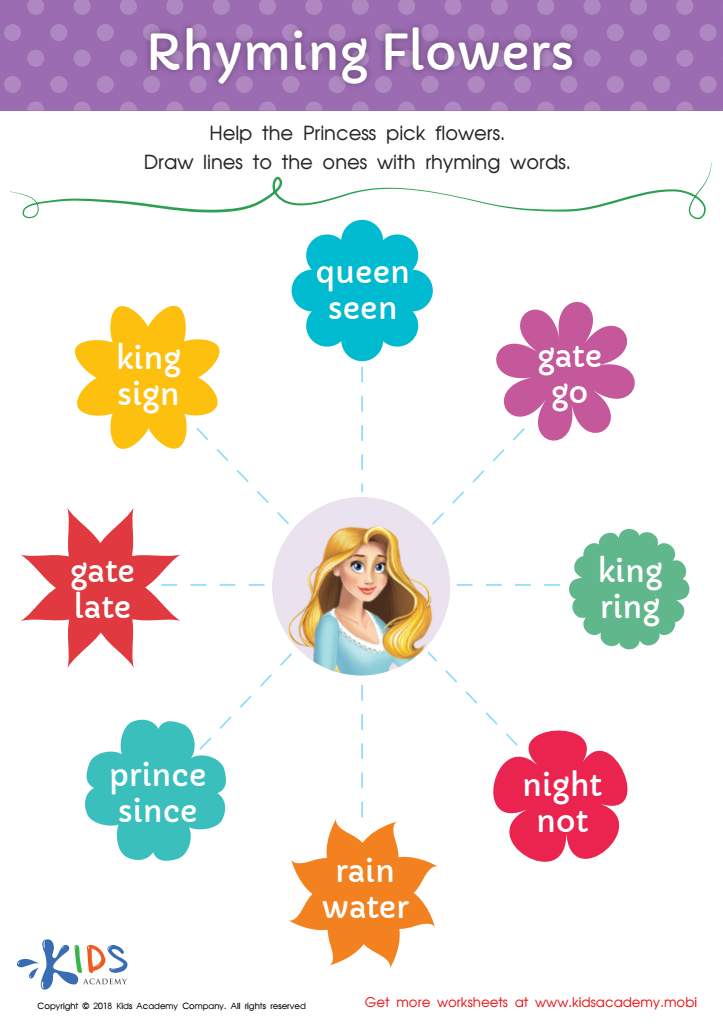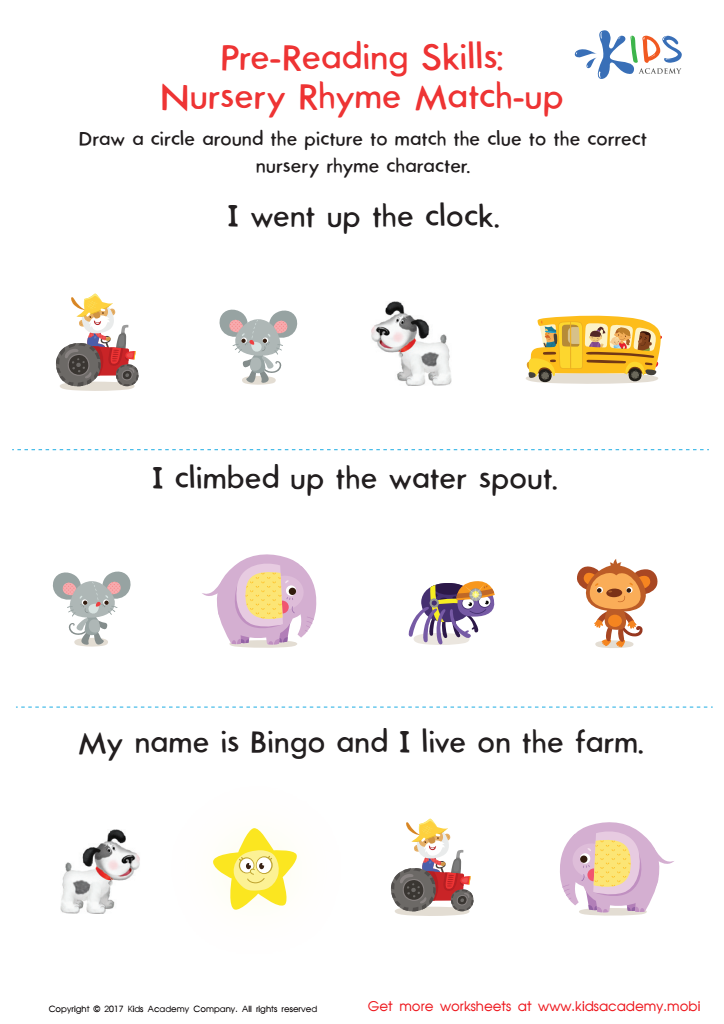Rhyme recognition Rhyming Worksheets for Ages 3-7
3 filtered results
-
From - To
Unlock the joy of learning with our Rhyme Recognition Worksheets for children ages 3-7! Tailored to foster early literacy skills, these engaging activities help young learners identify and complete rhyming words, enhancing vocabulary and phonemic awareness. Our colorful and interactive worksheets inspire creativity while making learning fun. Each exercise promotes critical thinking and builds a strong foundation for reading comprehension. Perfect for home or classroom use, these worksheets encourage children to explore the magical world of rhymes, sparking their imagination as they recognize patterns in sounds. Start your child's journey to literacy with our delightful rhyming resources today!


Baa Baa Black Sheep Printable


Rhyming Flowers Worksheet


Nursery Rhyme Match–Up Worksheet
Rhyme recognition is a crucial component of early literacy development for children aged 3 to 7. Engaging with rhymes helps children develop phonemic awareness, the ability to hear, identify, and manipulate sounds in spoken words. This skill lays the foundation for reading, as it enables children to connect sounds with letters and begins the process of decoding words.
Parents and teachers should prioritize rhyme recognition because it fosters language development in multiple ways, enhancing vocabulary, comprehension, and spelling skills. When children practice rhyming, they become more aware of the sounds letters produce and how they can form various words. Additionally, rhyming activities often promote listening skills and memory retention, as children learn to anticipate and recall words that fit within a particular rhyme scheme.
Beyond academic benefits, engaging with rhymes can facilitate a love of language through songs, poems, and playful storytelling. It nurtures creativity and expression, making learning enjoyable and interactive. Ultimately, understanding and recognizing rhymes equips young learners with essential early literacy skills that will significantly benefit their future reading and writing abilities, ensuring a strong foundation for lifelong learning. Therefore, parents and teachers should emphasize and integrate rhyming practices in early childhood education.
 Assign to My Students
Assign to My Students















